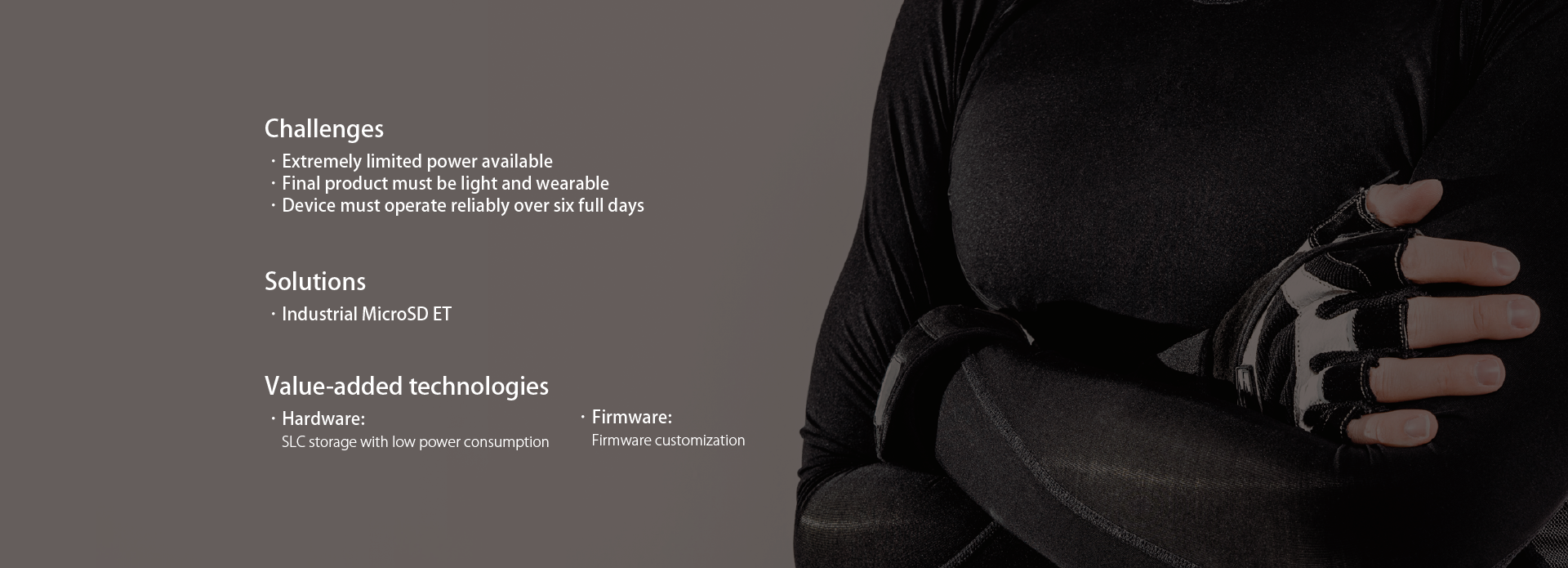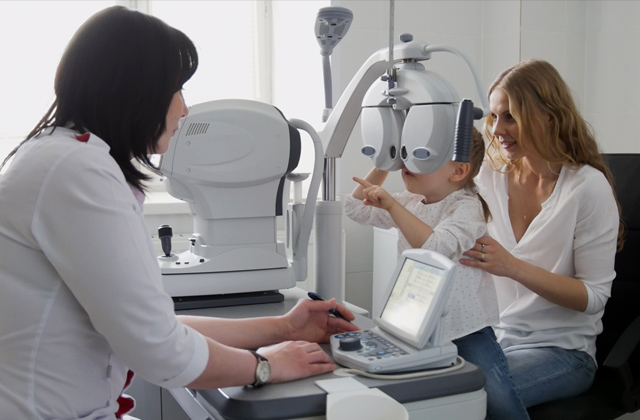 |
|
Our customer is a major leading manufacturer of healthcare equipment, ranging from devices used in top hospitals to products aimed at home use. Their latest product, still in the design stages, was a heartbeat detector and recorder, worn by patients to allow doctors to remotely monitor their recovery.
Challenges
The customer had certain hardware requirements that made finding a suitable storage solution difficult. For one thing, their products were made to be lightweight and wearable. A bulky, heavy battery pack was out of the question. Instead, a small, compact battery had been selected, but this could only supply a small fixed amount of power to the many components required. So they needed a storage solution that would draw only an extremely limited amount of power during operation, and would enter sleep mode when not in use.
Another issue was that the doctor needed to monitor each patient for 6 full days. The heartbeat detector needed to function smoothly and reliably for this entire period, and there would be no opportunity to replace or recharge the battery during this time.
Solutions and Technologies
The customer’s R&D team had tried various storage solutions, but had not been able to find a product that could run on such a small amount of current and still operate for six full days. But they had an idea which company could help them overcome this hurdle ‒ Apacer. They came to us and laid out the problem, and our technical experts tackled the issue right away.
First of all, our programmers began tweaking the device’s command set. In a short period of time, they had adjusted various internal settings to allow the device to operate without problems even when the current drawn was extremely low. They also set up a power-saving mode within the firmware so that power would not be consumed when it was not needed. Soon they were able to make the heartbeat detector run for longer periods of time, but despite their best efforts, the 6-day threshold had not been reached.
But Apacer wasn’t giving up. After a brainstorming session, the team switched to a different NAND chip configuration. Although this meant that the total volume of storage available was reduced, it was still enough to store 6 full days’ worth of data. And the new chip was capable of operating while drawing even less current than the previous one. Finally, the tests proved that a Industrial MicroSD ET storage solution could store all the data needed while still providing accurate monitoring over the entire 6-day period.
Results and Benefits
As the product ended up helping doctors and patients around the world, demand grew steadily for the client’s heartbeat monitor. They continue to work with us to help them create innovative healthcare devices, as they trust Apacer to advise them on which storage solutions can meet or exceed their strict design requirements.


